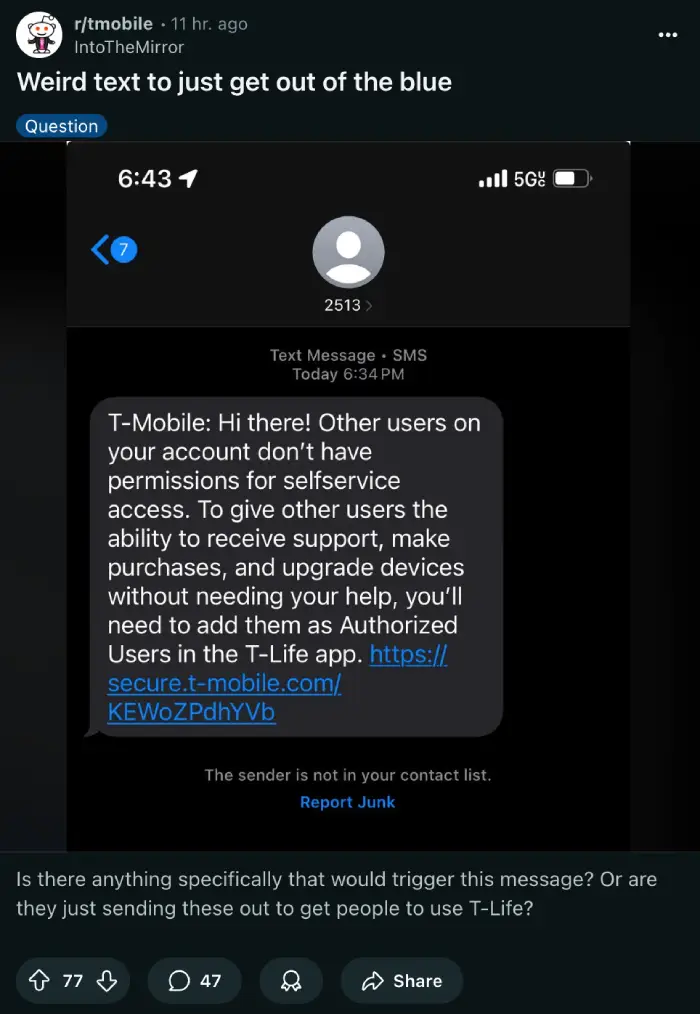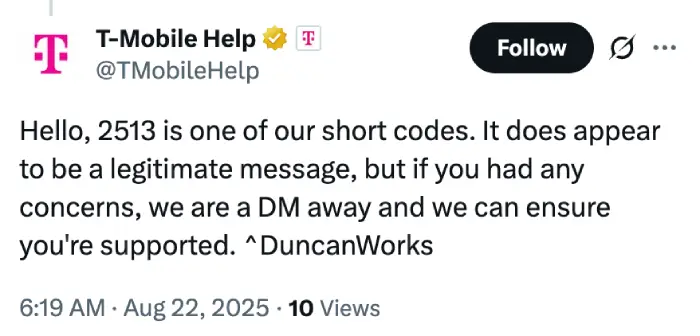If you got a weird text from T-Mobile about “self-service access” and thought it looked fishy, you’re not alone. Hundreds (if not thousands) of customers have been left confused with these texts, with many taking to Reddit and X to ask if they’d just received the latest scam attempt.
The texts, sent from T-Mobile’s official 2513 short code, inform customers that “other users on your account don’t have permissions for selfservice access” and direct them to add family members as “Authorized Users” through the T-Life app. What makes these messages particularly confusing is their awkward wording and the fact they arrive seemingly out of nowhere.
But here’s what’s really happening: T-Mobile is pushing hard to get people using their T-Life app, and these texts are part of that strategy. The company wants family account holders to formally authorize other users so those people can walk into stores, make purchases, upgrade devices, and handle account issues without needing the primary account holder present.
T-Mobile confirmed that the number is one of their shortcodes in a response on X:
One user noted that even single-line customers got the text, which doesn’t make much sense since there are no “other users” to authorize. Others pointed out that T-Mobile seems “SO THIRSTY for T-life usage” based on how aggressively they’re promoting the app.
The business logic is pretty straightforward though. When family members can’t make changes to their lines because they’re not authorized, T-Mobile loses potential sales. If your teenager wants to upgrade their phone but you’re at work, that’s a missed opportunity unless they’re an authorized user who can complete the transaction independently.
What’s frustrating customers most is how the text is worded. These texts feel random and use language that sounds more like a phishing attempt than official communication. The generic nature of sending them to everyone, regardless of account setup, hasn’t helped matters either.
But this is not the first, and won’t be the last time we’ll see something like this. We recently highlighted a confusing text that was sent to T-Mobile and MetroPCS users as well. Then there was an actual phishing scam involving VDOT text messages. So if a text feels suspicious, it’s best to verify the legitimacy before you click any links or share any details.
TechIssuesToday primarily focuses on publishing 'breaking' or 'exclusive' tech news. This means, we are usually the first news website on the whole Internet to highlight the topics we cover daily. So far, our stories have been picked up by many mainstream technology publications like The Verge, Macrumors, Forbes, etc. To know more, head here.




